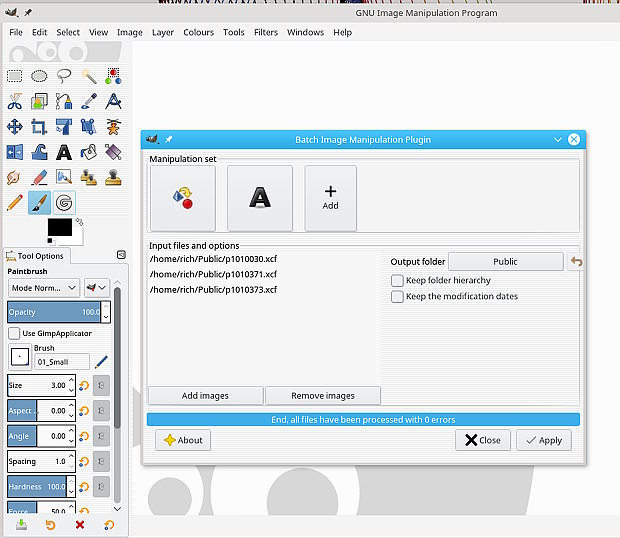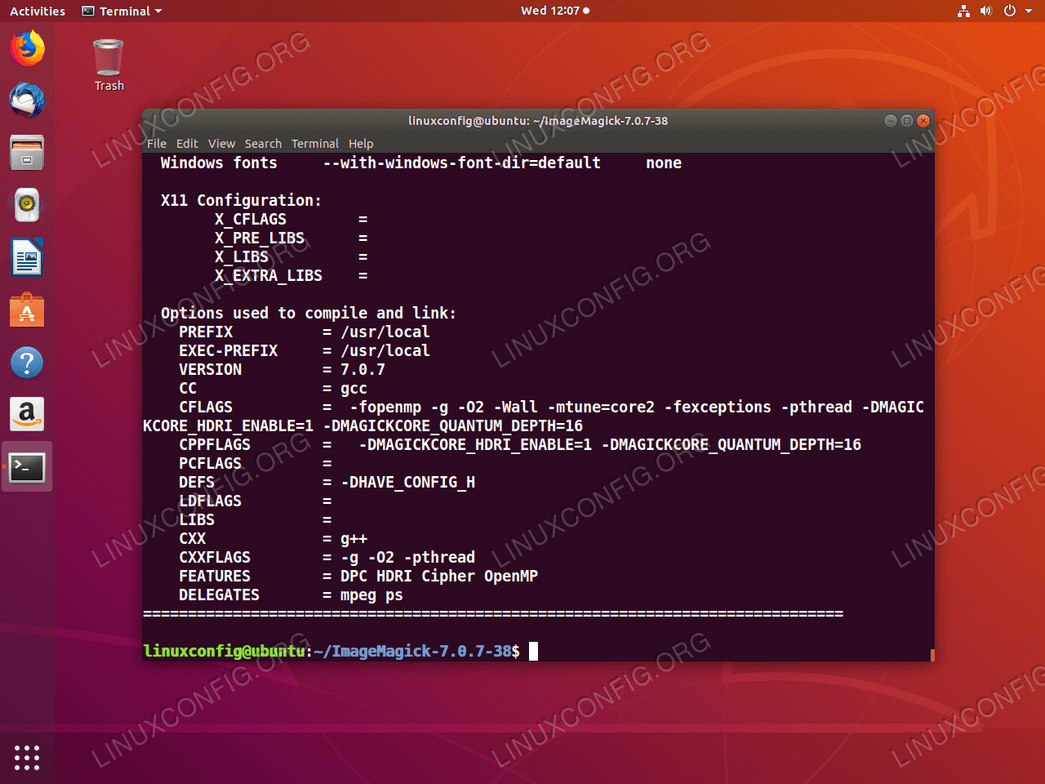
Using LANG=C: $ LANG=C convert -limit memory 2MB -limit map 2MB -limit area 1000MB -delay 2 -loop 0 "Bug do pagamento.gif" Extraídos/bug.pngĬonvert: unable to write pixel cache '/tmp/magick-RlftdgBD6MZCwArQzkuz5QI-kJtui7yk': No space left on device error/cache.c/WritePixelCachePixels/5830. Zsh: exit 1 convert -limit memory 2MB -limit map 2MB -limit area 1000MB -delay 2 -loop 0Ĭonvert -limit memory 2MB -limit map 2MB -limit area 1000MB -delay 2 -loop 0 2,75s user 2,73s system 99% cpu 5,505 total

I received the error: $ convert -limit memory 2MB -limit map 2MB -limit area 1000MB -delay 2 -loop 0 "Bug do pagamento.gif" Extraídos/bug.pngĬonvert: unable to write pixel cache '/tmp/magick-RSymnnZRmXzueDXGI3ehEtIiUkBcymGa': Sem espaço livre no dispositivo error/cache.c/WritePixelCachePixels/5830.Ĭonvert: corrupt image `Bug do pagamento.gif' error/gif.c/DecodeImage/505.Ĭonvert: corrupt image `Bug do pagamento.gif' error/gif.c/ReadGIFImage/1368.Ĭonvert: no images defined `Extraídos/bug.png' error/convert.c/ConvertImageCommand/3285.


It's much better to leave things configured so ImageMagick refuses to process files that require running a program and, instead, just invoke Ghostscript directly when you intentionally want to permit Postscript rendering.

The open-source Linux tool utilizes the multiple CPU threads to keep the. The ImageMagick change was kept after Ghostscript was fixed because applications (especially web applications) often feed arbitrary user-supplied files to ImageMagick, don't always enforce format restrictions properly, and, since Postscript (which PDF uses) is a turing-complete programming language running in a sandbox, there's always the possibility of another hole in the sandbox. ImageMagick stands out for the image conversion to PDF for its fast speed.


 0 kommentar(er)
0 kommentar(er)
